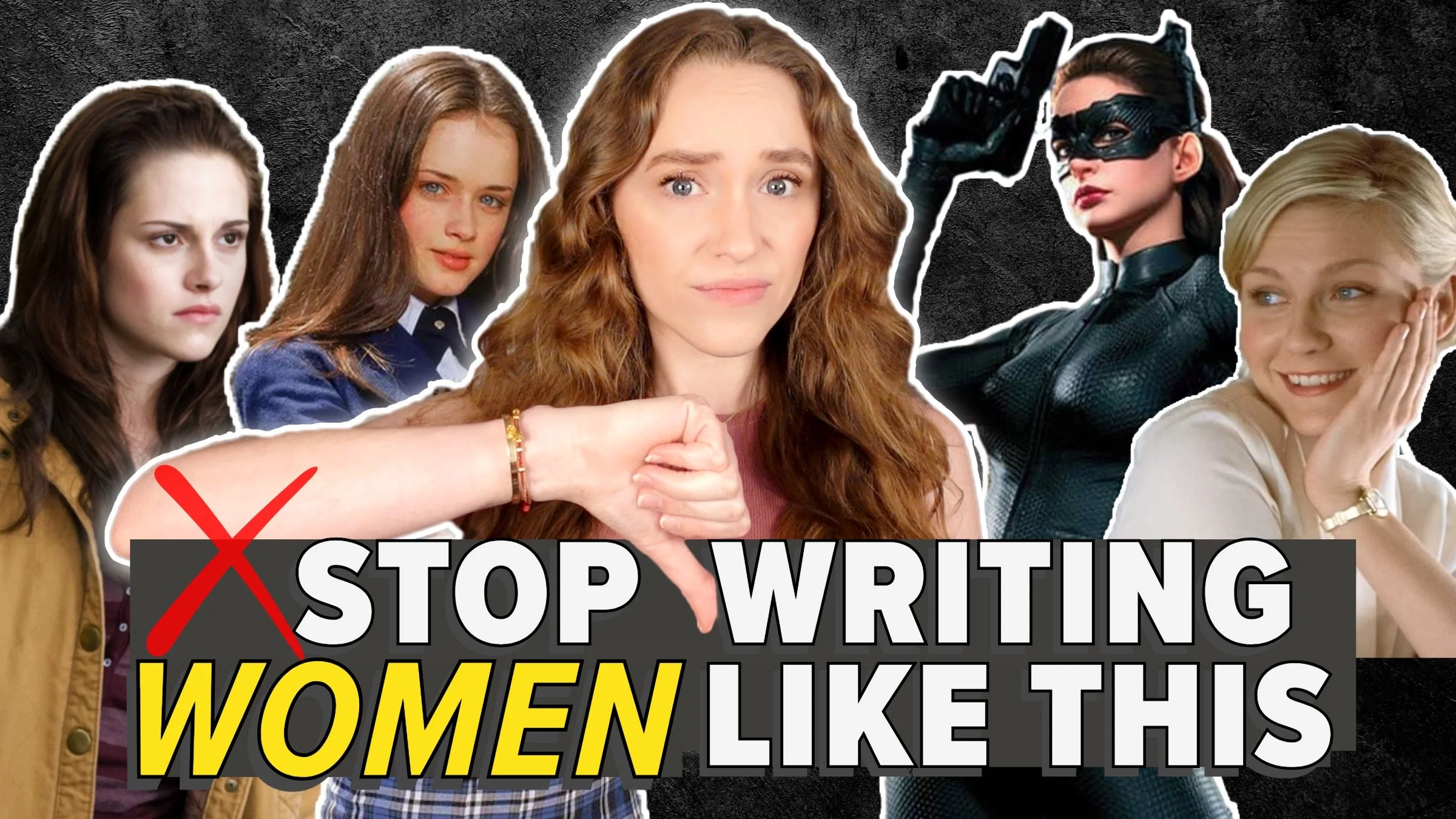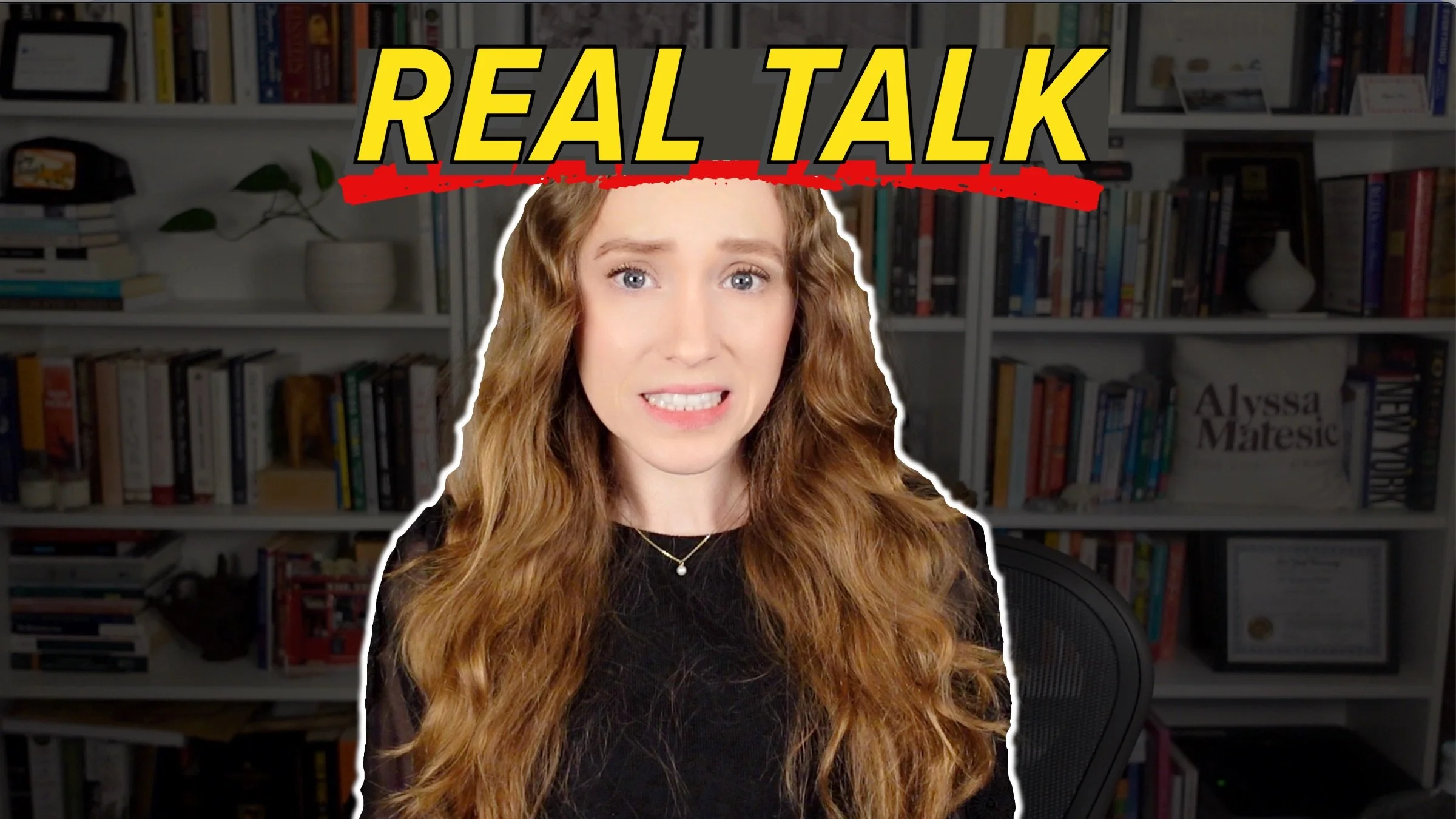Is Traditional Publishing Bad? Thoughts From a Book Editor
HIT PLAY OR READ THE POST BELOW:
With the rise of self-publishing and hybrid publishing, traditional publishing often gets a bad reputation, and I completely understand why. As someone who used to work in traditional book publishing, I have peeves with the industry I want to share.
I will first say that I still strongly feel that traditional publishing is a viable path and it is still the best way to get your books distributed in major outlets. However, I also acknowledge there are a lot of limitations to traditional publishing and a lot of flaws in the process. When I say “traditional publishers” I'm talking about the five major publishing houses in the US: Penguin Random House, Hachette, HarperCollins, Simon & Schuster, and Macmillan.
I worked at two of these publishing houses in the US, specifically in their editorial departments, so that’s the perspective I'm coming from.
So, is traditional publishing bad? Here are my thoughts on the biggest issues facing the publishing industry currently.
It’s Old-Fashioned
The first thing I hate about the traditional publishing industry is that it's simply old-fashioned. Most traditional publishers are still focused on the process of printing and selling physical copies of books, whether that is a hardcover or a paperback edition. Of course now that we have ebooks, publishers sell them as well. But the structure of the publishing house itself, with the different departments they have and the different processes in place, is based on printing and selling physical books. They haven't revolutionized their approach in the digital era.
One positive aspect of the industry being old is that it feels like being a part of a well-oiled machine. Since these businesses have been around for a while, these houses have a certain and set way of doing things. For example, Random House, which is one of the imprints I worked at, was established in 1927, which at this point is nearly a century ago. However, this can also feel as if they aren’t receptive to change and adaptation.
To give an anecdote of what I mean, I worked with an editor who still printed out physical copies of all her authors’ manuscripts for every single draft. She edited them by hand with a red pen and then mailed them to the authors, so they would get this huge package full of papers and have to then cross-reference those physical pages with the digital document they actually work from.
While this is an extreme example, as most editors use digital tools, this gives you a taste of the types of personalities and processes still in play at the major publishers in the US.
It’s Enigmatic
When people debate the question “is traditional publishing bad,” there are often discussions of how opaque and enigmatic the industry is. Most people, including writers who are interested in getting published, don't have a full picture of how books get published and distributed.
I, for one, had no idea about the industry until I became familiar with it through my time at college in New York City. Until that point, it didn't occur to me that there were editors and literary agents and all these mechanics that went into the industry.
To authors, it can be unclear why some books are available in Barnes & Noble or your local bookstore and others are only on Amazon. It can also be confusing as to why some authors seem to get paid a lot and others very little. All these questions around the publishing industry are opaque and their answers hard to find. This can make authors feel that their dreams of publishing are impossible to achieve.
If that sounds like you, I want to assure you that it is possible. The industry’s mysterious nature is one of the biggest things I hate about traditional publishing. But there are many resources available nowadays for writers hoping to get published. I created my platform to do what I can to make the publishing industry more accessible to writers. Traditional publishing can seem mysterious, but through a little research and hard work, it can be accessible.
It’s Becoming Monopolized
The third thing I hate about the traditional publishing industry is that it's becoming monopolized. Penguin Random House is currently trying to acquire Simon & Schuster, and if it goes through, there will only be four major publishing houses in the US. These big publishing houses are responsible for most of the best sellers in the New York Times or USA Today lists.
Putting the pending deal aside, the Big Five publishing houses have historically become bigger and bigger, with Penguin Random House now the largest publishing house in the US, as it has the most number of imprints. An imprint is a subdivision of a larger publishing house. So, although a book might be listed as being published by Knopf, its parent company is Penguin Random House. Each of those imprints has their own personality, with their own list of books and types of genres that they specialize in.
With the publishing industry is becoming consolidated, smaller publishing houses are becoming imprints of the larger publishing houses. For many writers, these consolidations feel like doors being closed. While hopefully that is not the case, there is an argument that fewer conglomerate publishers threaten competition, which could possibly lead to smaller or fewer book deals.
It also means that there are a few people at the top making sweeping decisions that will affect the entire book industry. These handful of executives have a lot of power when it comes to the vast majority of books that are being distributed and sold in the US, which could potentially be problematic.
It’s Geographically Sequestered
The fourth thing I hate about the traditional publishing industry is that it's sequestered. All the major publishing houses and most of the literary agencies that sell books to them are based in New York City.
Thus, publishing professionals historically have had to live and work in New York City, which is a city that attracts a certain demographic. Publishing employees ultimately have to be able to provide for themselves in New York City on a notoriously low publishing salary. That said, with the current state of things, some publishing houses have become more flexible with work from home policies.
But regardless, they are all headquartered in the city. This means there's a limited type of person who can work in the industry, which then means there is a limited number of perspectives among workers at the publishing house.
For authors, the fact that nearly all industry professionals are based in New York City simply means they may not get to meet their agent or editor in person, unless one of them travels. Being able to meet them in-person is very lucky.
It’s Tough to Break Into
In breaking down the question “is traditional publishing bad?” we need to discuss barriers to entry. If you are reading this article, it’s likely that you are also trying to get published by a major house. This is true for both writers and publishing professionals: it is really hard to get your foot in the door. Whether you want to become an editor at a publishing house or want to be published by a major publishing house, the process often comes with a lot of rejection and even ghosting from literary agents just because of the sheer number of submissions they get every day.
The fact that it is so tough to break in is part of what makes it such an impressive achievement to become traditionally published. However, the difficulty is also one of the biggest cons to publishing through this route. You have to have grit and perseverance.
So, is traditional publishing bad? I know this article focused on a lot of negativity and the things I don't like about the publishing industry. However, I am passionate about helping writers navigate this process because I do strongly feel it can be an exciting and rewarding path.
If you do want to become traditionally published, please don't be discouraged! I want to offer this perspective so you know exactly what you're getting into. I encourage you to keep your head up and keep trying because it is possible to achieve your publishing dreams, no matter how flawed the industry may be.
Thanks so much for reading, and happy writing!





